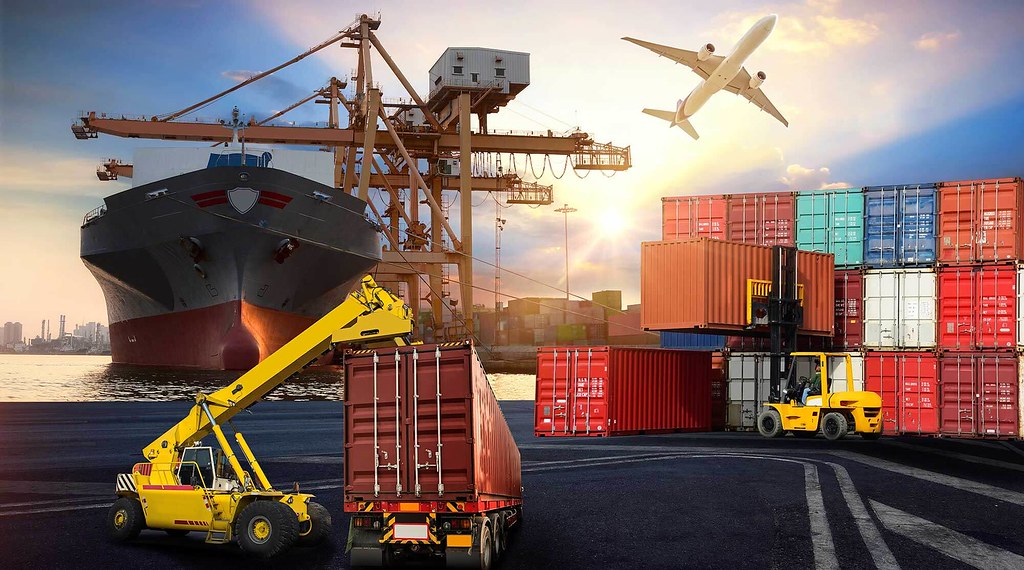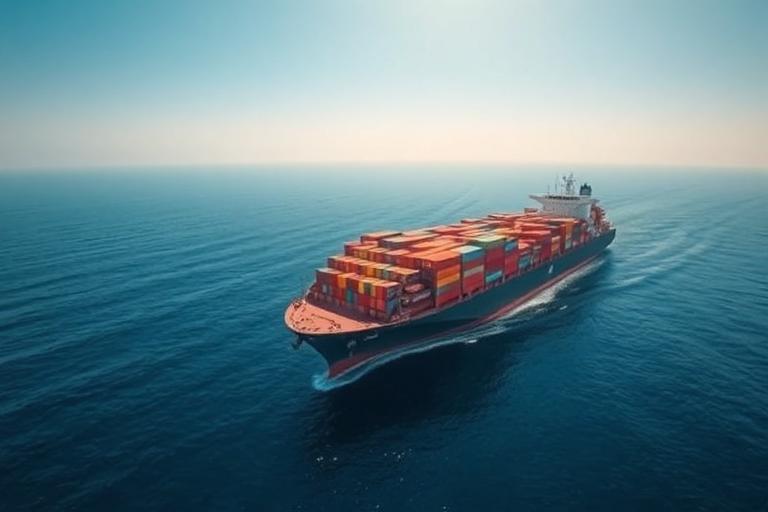Navigating the complexities of international shipping can be daunting, especially for businesses importing goods from China. One solution that streamlines this process is door-to-door shipping, a comprehensive logistics service that delivers products directly from the sender’s location to the recipient’s address. This approach eliminates the hassle of managing multiple logistics steps, offering convenience and peace of mind. With various shipping methods available—such as express, air freight, and sea freight—importers can select the option that best meets their needs, balancing speed and cost. In this guide, we will explore the key benefits of door-to-door shipping, the different shipping methods available for transporting goods from China to Turkey, and essential tips for ensuring a smooth shipping experience.

Understanding Door-to-Door Shipping
Door-to-door shipping is a comprehensive logistics service that involves the transportation of goods directly from the sender’s location to the recipient’s address. This service encompasses all necessary steps in the shipping process, including pickup, handling, transportation, customs clearance, and final delivery. By using door-to-door shipping services, importers can enjoy a seamless experience, as the logistics provider manages the entire process, ensuring that the goods arrive at their destination without complications.
This shipping method is particularly beneficial for importers who may not have the expertise or resources to manage complex logistics operations. With Dantful International Logistics, customers can leverage professional support tailored to their specific shipping needs, enabling them to focus on their core business activities while leaving the logistics to experts.
Why Choose Door-to-Door Shipping?
Opting for door-to-door shipping provides several advantages for businesses importing goods from China. Key benefits include:
-
Convenience: With a single point of contact for the entire shipping process, businesses can save time and effort. The logistics provider handles all arrangements, allowing importers to concentrate on their business.
-
Cost-Effective: By utilizing a door-to-door service, businesses can optimize shipping costs as the logistics provider organizes all aspects of the shipment, often leading to lower rates due to bulk deals with carriers.
-
Enhanced Tracking: Freight forwarders like Dantful offer real-time tracking solutions, enabling importers to monitor their shipments throughout the entire journey, thus reducing anxiety and improving transparency.
-
Simplified Customs Clearance: Door-to-door shipping services typically include assistance with customs documentation and clearance, minimizing potential delays and ensuring compliance with local regulations.
-
Flexibility: Businesses can choose from various shipping methods and service levels, allowing them to select options that best fit their timelines and budgets.
Shipping Methods from China to Turkey
When considering shipping from China to Turkey, various methods offer distinct advantages based on speed, cost, and the nature of the goods. Below are three primary shipping methods available for door-to-door service:
Express Shipping Door to Door
Express shipping is the fastest option available for door-to-door services. This method typically utilizes courier services to ensure swift delivery of goods. Importers can expect delivery times ranging from 1 to 5 days, depending on the specific locations involved.
While express shipping may be more expensive than other methods, it is ideal for time-sensitive shipments or valuable items requiring immediate delivery. Companies like Dantful provide express shipping solutions tailored to meet urgent needs, ensuring that businesses can maintain their operational efficiency.
Air Freight Door to Door
Air freight is another efficient mode of transport for shipping goods from China to Turkey. This method is suitable for larger shipments that are not as time-sensitive as express courier services but still require faster delivery compared to sea freight.
Air freight typically offers a delivery time of approximately 5 to 10 days. It is an ideal choice for high-value goods or perishable items. Importers can benefit from the flexibility of choosing between various airlines and routes. Dantful’s air freight door-to-door services ensure comprehensive support, from pickup to customs clearance, ultimately delivering goods directly to the customer’s location.
Sea Freight Door to Door
Sea freight is the most economical option for shipping larger volumes of goods from China to Turkey. Although it has a longer transit time, usually ranging from 20 to 45 days, sea freight is suitable for bulk shipments, heavy machinery, and raw materials.
Importers can choose between Full Container Load (FCL) and Less than Container Load (LCL) based on their shipment size. Dantful’s sea freight door-to-door services incorporate comprehensive logistics management, ensuring a smooth shipping experience with effective customs clearance and delivery coordination.
Comparison of Shipping Methods
To facilitate decision-making, a comparison table summarizing the key characteristics of each shipping method is provided below:
| Shipping Method | Delivery Time | Cost | Best For |
|---|---|---|---|
| Express Shipping | 1-5 days | High | Time-sensitive shipments |
| Air Freight | 5-10 days | Moderate to High | High-value or perishable goods |
| Sea Freight | 20-45 days | Low | Bulk shipments, heavy items |
Choosing the right shipping method between express, air, and sea freight depends on the specific needs of the business, including delivery timelines, shipment size, and budget parameters.
Importers seeking reliable and cost-effective solutions can consider Dantful International Logistics as their trusted partner for all shipping needs, whether opting for door-to-door shipping services, customs clearance, or additional support like insurance services and warehouse services. By engaging with a professional logistics provider, companies can optimize their supply chain operations and enhance their competitive edge in the international market.
You may be interested in the following related articles:
- Shipping From China To Cyprus
- Shipping From China to Hungary
- Shipping From China to Romania
- Shipping From China to Greece
- Shipping From China to Turkey
- Shipping From China To Belgium
- Shipping From China to Austria
- Shipping from China to Russia
- Shipping From China To Sweden
- Shipping From China To Finland
- Shipping From China To Portugal
Cost of Door-to-Door Shipping from China to Turkey
Factors Affecting Shipping Costs
The cost of door-to-door shipping from China to Turkey can vary significantly based on numerous factors. Understanding these variables is essential for businesses to manage their logistics budgets effectively. Key factors influencing shipping costs include:
- Shipping Method:
- The choice between express, air freight, and sea freight significantly affects the total cost. Express shipping, while the fastest, tends to be the most expensive.
- Weight and Volume:
- Shipping costs are typically calculated based on the weight and volume of the goods. Heavier or bulkier items will incur higher expenses, particularly with weight-sensitive carriers.
- Distance:
- The distance between the origin and destination impacts transportation costs. Longer distances generally lead to higher shipping fees, especially for road transport.
- Customs Duties and Taxes:
- Import duties, taxes, and customs clearance fees can add to the total cost. Understanding Turkey’s import regulations is crucial to avoid unexpected charges.
- Insurance:
- Opting for insurance services to cover potential damages or losses during transit can also influence overall shipping costs. Businesses should assess the value of their goods and consider appropriate insurance coverage.
- Seasonality and Demand:
- Peak shipping seasons, such as holiday periods, can lead to increased demand and subsequently higher shipping costs. Businesses should plan accordingly to avoid inflated rates during busy times.
Cost Comparison by Shipping Method
To provide a clearer understanding of shipping costs, a comparison of average costs by shipping method is outlined below. The figures can vary based on the specific circumstances of each shipment, but this table offers a general overview:
| Shipping Method | Average Cost per Kilogram | Estimated Cost for 100 kg | Estimated Cost for 500 kg |
|---|---|---|---|
| Express Shipping | $20 – $30 | $2,000 – $3,000 | $10,000 – $15,000 |
| Air Freight | $8 – $15 | $800 – $1,500 | $4,000 – $7,500 |
| Sea Freight (FCL) | $3 – $5 | $300 – $500 | $1,500 – $2,500 |
| Sea Freight (LCL) | $5 – $10 | $500 – $1,000 | $2,500 – $5,000 |
These figures reflect average costs and may vary based on carrier contracts, service agreements, and specific shipment requirements. Importers should consult with Dantful International Logistics to receive tailored quotes based on their unique shipping needs.
Shipping Times in Door-to-Door Shipping
Estimated Durations for Different Shipping Methods
The shipping duration is a critical factor for businesses when selecting a logistics provider. Below are the estimated delivery times for various door-to-door shipping methods from China to Turkey:
| Shipping Method | Estimated Delivery Time |
|---|---|
| Express Shipping | 1 – 5 days |
| Air Freight | 5 – 10 days |
| Sea Freight (FCL) | 20 – 40 days |
| Sea Freight (LCL) | 25 – 45 days |
Delivery times can vary based on the specific routes, service levels, and operational efficiencies of the logistics provider. Importers should factor in these timelines when planning their inventory and supply chain needs.
Factors That Can Affect Delivery Times
Several elements can influence the delivery times for door-to-door shipping, including:
- Shipping Method:
- The choice between express, air freight, and sea freight significantly affects the total cost. Express shipping, while the fastest, tends to be the most expensive.
- Weight and Volume:
- Shipping costs are typically calculated based on the weight and volume of the goods. Heavier or bulkier items will incur higher expenses, particularly with weight-sensitive carriers.
- Distance:
- The distance between the origin and destination impacts transportation costs. Longer distances generally lead to higher shipping fees, especially for road transport.
- Customs Duties and Taxes:
- Import duties, taxes, and customs clearance fees can add to the total cost. Understanding Turkey’s import regulations is crucial to avoid unexpected charges.
- Insurance:
- Opting for insurance services to cover potential damages or losses during transit can also influence overall shipping costs. Businesses should assess the value of their goods and consider appropriate insurance coverage.
- Seasonality and Demand:
- Peak shipping seasons, such as holiday periods, can lead to increased demand and subsequently higher shipping costs. Businesses should plan accordingly to avoid inflated rates during busy times.
By understanding the dynamics of shipping costs and times, businesses can make informed decisions that align with their operational needs and budget constraints. Dantful International Logistics stands ready to assist importers in navigating these complexities, providing tailored solutions for efficient and reliable door-to-door shipping from China to Turkey.
Customs Clearance and Duties
Customs Procedures in Turkey
Customs clearance is a critical aspect of international shipping that involves the submission of necessary documentation to the Turkish customs authorities for the importation of goods. Understanding the customs procedures in Turkey is essential for businesses looking to import goods from China efficiently. The process involves several steps:
- Documentation Preparation:
- Importers must prepare and submit various documents, including the commercial invoice, packing list, bill of lading or airway bill, import licenses (if applicable), and any relevant certificates (e.g., origin or conformity certificates).
- Customs Declaration:
- A formal customs declaration must be submitted to the Turkish customs authorities, detailing the nature, quantity, and value of the goods being imported. This declaration must accurately reflect the shipment to avoid potential penalties.
- Payment of Duties and Taxes:
- Upon review of the customs declaration, customs officers will determine the applicable import duties and taxes. Importers must pay these charges as part of the clearance process.
- Inspection and Release:
- Customs may choose to inspect the shipment, particularly for high-value or high-risk items. Once cleared, importers will receive a release notification, allowing goods to be delivered to their final destination.
- Storing and Bonding:
- In some cases, goods may need to be stored in a bonded warehouse if the customs process is delayed or if the shipment requires further inspection. Understanding Turkish warehousing regulations can help streamline this process.
Using a professional logistics service provider like Dantful International Logistics can ensure that all customs procedures are handled correctly, minimizing delays and avoiding potential fines.
Import Duties and Taxes
When importing goods into Turkey, businesses must be aware of the various duties and taxes that can apply. These charges can significantly influence the overall cost of importing and should be factored into any budgeting or financial planning:
- Documentation Preparation:
- Importers must prepare and submit various documents, including the commercial invoice, packing list, bill of lading or airway bill, import licenses (if applicable), and any relevant certificates (e.g., origin or conformity certificates).
- Customs Declaration:
- A formal customs declaration must be submitted to the Turkish customs authorities, detailing the nature, quantity, and value of the goods being imported. This declaration must accurately reflect the shipment to avoid potential penalties.
- Payment of Duties and Taxes:
- Upon review of the customs declaration, customs officers will determine the applicable import duties and taxes. Importers must pay these charges as part of the clearance process.
- Inspection and Release:
- Customs may choose to inspect the shipment, particularly for high-value or high-risk items. Once cleared, importers will receive a release notification, allowing goods to be delivered to their final destination.
- Storing and Bonding:
- In some cases, goods may need to be stored in a bonded warehouse if the customs process is delayed or if the shipment requires further inspection. Understanding Turkish warehousing regulations can help streamline this process.
Understanding these duties and taxes is essential for businesses to anticipate overall import costs and maintain compliance with Turkish regulations.
Insurance and Tracking
Cargo Insurance
Ensuring that goods are protected during transit is essential for minimizing risks associated with international shipping. Cargo insurance provides financial coverage against potential losses or damages that may occur during the shipping process. Key aspects of cargo insurance include:
- Types of Coverage:
- Importers can choose from various types of coverage, including:
- All Risk Coverage: This comprehensive policy covers all types of damages or losses unless specifically excluded.
- Named Perils Coverage: This policy covers only specific risks listed in the policy, such as fire, theft, or collision.
- Importers can choose from various types of coverage, including:
- Value Determination:
- The insured value of the cargo should reflect the total value of the goods, including costs associated with shipping and any applicable duties. This ensures that businesses are adequately covered in case of loss.
- Claim Process:
- In the event of loss or damage, the claims process typically involves notifying the insurance provider immediately, providing necessary documentation (such as the bill of lading and photographs of damages), and following the procedures set by the insurer.
- Benefits of Cargo Insurance:
- Cargo insurance can provide peace of mind to importers by mitigating financial risks associated with unexpected incidents, such as accidents, theft, or natural disasters.
Tracking Your Shipment
Tracking shipments is a vital component of modern logistics, providing importers with real-time visibility into the status of their goods. Effective tracking can enhance communication, improve inventory management, and mitigate concerns related to delays. Here are key elements of shipment tracking:
- Tracking Technologies:
- Most logistics providers, including Dantful International Logistics, utilize advanced tracking technologies that allow real-time monitoring of shipments. This includes GPS tracking, QR codes, and barcodes, enabling businesses to access updates through online portals or mobile applications.
- Tracking Information:
- Importers can typically access detailed tracking information, including:
- Current location of the shipment
- Estimated arrival time
- Any delays or issues encountered during transit
- Confirmation of customs clearance status
- Importers can typically access detailed tracking information, including:
- Enhanced Communication:
- Tracking features also facilitate better communication between businesses and their logistics providers, allowing for proactive management of potential issues. Importers can receive alerts regarding changes in status, enabling them to make informed decisions based on the latest information.
- Impact on Supply Chain Management:
- By maintaining visibility throughout the shipping process, businesses can optimize their supply chain operations. This visibility aids in improving forecasting, reducing lead times, and ensuring timely delivery to customers.
Partnering with a reliable logistics provider like Dantful enables importers to benefit from comprehensive insurance solutions and effective tracking capabilities, ultimately ensuring a smoother shipping experience from China to Turkey.
Choosing the Right Shipping Partner
Evaluating Shipping Companies
Selecting the appropriate shipping partner is fundamental to the success of your international trade operations. Several criteria should be considered when evaluating shipping companies to ensure they align with your logistical needs and business objectives:
- Industry Experience:
- Look for companies with a proven track record in the industry. Experienced shipping providers understand the complexities of international logistics, including customs regulations, documentation requirements, and potential challenges.
- Service Offerings:
- Evaluate the range of services offered by the shipping company. A versatile logistics provider should offer various shipping methods (express, air, and sea freight), door-to-door shipping, customs clearance, and additional services such as warehousing and freight insurance.
- Reputation and Reviews:
- Research the company’s reputation through customer reviews and testimonials. Reliable shipping partners will have positive feedback regarding their punctuality, customer service, and handling of goods.
- Technological Capabilities:
- Assess the technological tools available for tracking shipments and managing logistics. Advanced tracking systems provide real-time updates and enhance communication during the shipping process.
- Financial Stability:
- Choose a shipping partner with financial stability to avoid disruptions in service. A well-established company is more likely to have the necessary resources and infrastructure to manage your shipping needs effectively.
- Customs Expertise:
- A shipping partner with expertise in customs processes can facilitate smoother customs clearance, ensuring compliance with local regulations and minimizing delays.
By considering these factors, businesses can make informed decisions when selecting a shipping partner that best meets their requirements.
Dantful Door-to-Door Service
Dantful International Logistics stands out among logistics providers by offering door-to-door shipping services tailored to meet the diverse needs of importers. Key features of Dantful’s service include:
- Comprehensive Support:
- Dantful provides a full range of logistics services, including pickup, handling, transportation, customs clearance, and final delivery, ensuring a seamless experience for customers.
- Expert Guidance:
- With extensive industry knowledge, Dantful’s team helps navigate the complexities of international shipping, assisting customers with customs documentation and compliance to avoid potential issues.
- Flexible Shipping Options:
- Dantful offers various shipping methods, including express shipping, air freight, and sea freight, allowing businesses to select the most suitable option based on their budget and timelines.
- Real-Time Tracking:
- Customers benefit from advanced tracking solutions, which provide real-time visibility into their shipments’ status throughout the shipping process, enhancing peace of mind.
- Tailored Solutions:
- Dantful understands that each business has unique needs. The logistics provider offers customized solutions, including warehousing and insurance services, to meet specific requirements.
Choosing Dantful as your shipping partner equips your business with the expertise and resources necessary for smooth and efficient logistics operations.
Dantful International Logistics Services:
- Dantful Ocean Freight Services
- Air Freight From China
- Amazon FBA Freight Forwarding
- WAREHOUSE Services
- One-Stop Customs Clearance Solution
- Cargo Insurance Services in China
- DDP Shipping Services By Dantful Logistics
- Out of Gauge Cargo Transportation Shipping Services
Tips for a Smooth Shipping Experience
Pre-Shipment Planning
Effective pre-shipment planning can significantly enhance the efficiency of the shipping process. Consider the following tips:
- Understand Shipping Requirements:
- Familiarize yourself with the documentation and regulations specific to shipping goods from China to Turkey. Ensuring compliance with customs requirements can help avoid delays and penalties.
- Select the Right Shipping Method:
- Assess the urgency, size, and nature of the shipment to determine the most appropriate shipping method. Weigh the benefits of express shipping against the cost-effectiveness of sea freight.
- Prepare Accurate Documentation:
- Ensure all necessary documents, such as commercial invoices, packing lists, and certificates of origin, are properly prepared and accurate. Inaccuracies can lead to customs delays.
- Inventory Management:
- Plan your inventory levels based on expected delivery times and market demand. Proper stock management can mitigate disruptions in business operations.
- Engage a Reliable Logistics Partner:
- Collaborate with a trusted logistics provider like Dantful that can guide you through the complexities of international shipping and assist with any technical or regulatory matters.
During Shipment
Monitoring shipments during transit is crucial for maintaining operational efficiency. Implement the following strategies:
- Utilize Tracking Tools:
- Make use of the tracking systems provided by your logistics partner to stay informed about your shipment’s status. This allows for timely updates and helps manage expectations.
- Maintain Communication:
- Establish robust communication channels with your shipping provider. Regular check-ins can help address any potential issues proactively.
- Document Changes:
- If any changes occur during transit (e.g., delays or rerouting), document these changes. Maintaining a clear record can be helpful if disputes arise or for future reference.
Post-Shipment
After your goods have arrived, there are several important steps to ensure a smooth transition into your inventory:
- Inspect Shipments:
- Upon receipt, carefully inspect the goods for any damages or discrepancies. Reporting any issues promptly can facilitate the claims process with your insurance provider.
- Handle Customs Clearance:
- Ensure that customs clearance is completed efficiently to avoid unnecessary delays. Work with your logistics provider to resolve any potential customs issues swiftly.
- Manage Inventory:
- Integrate newly received goods into your inventory system promptly. Effective inventory management helps maintain accurate stock levels and facilitates better forecasting.
- Provide Feedback:
- Evaluate your shipping experience and provide feedback to your logistics partner. Constructive feedback can improve service quality and strengthen your business relationship.
By implementing these tips for each phase of the shipping process, businesses can enhance their overall efficiency and achieve a successful shipping experience with Dantful International Logistics as their dedicated partner.

Young Chiu is a seasoned logistics expert with over 15 years of experience in international freight forwarding and supply chain management. As CEO of Dantful International Logistics, Young is dedicated to providing valuable insights and practical advice to businesses navigating the complexities of global shipping.





















 Afrikaans
Afrikaans Shqip
Shqip አማርኛ
አማርኛ العربية
العربية Հայերեն
Հայերեն Azərbaycan dili
Azərbaycan dili Euskara
Euskara Беларуская мова
Беларуская мова বাংলা
বাংলা Bosanski
Bosanski Български
Български Català
Català Cebuano
Cebuano Chichewa
Chichewa 简体中文
简体中文 繁體中文
繁體中文 Corsu
Corsu Hrvatski
Hrvatski Čeština
Čeština Dansk
Dansk Nederlands
Nederlands English
English Esperanto
Esperanto Eesti
Eesti Filipino
Filipino Suomi
Suomi Français
Français Galego
Galego ქართული
ქართული Deutsch
Deutsch Ελληνικά
Ελληνικά Kreyol ayisyen
Kreyol ayisyen Harshen Hausa
Harshen Hausa Ōlelo Hawaiʻi
Ōlelo Hawaiʻi עִבְרִית
עִבְרִית हिन्दी
हिन्दी Hmong
Hmong Magyar
Magyar Íslenska
Íslenska Igbo
Igbo Bahasa Indonesia
Bahasa Indonesia Gaeilge
Gaeilge Italiano
Italiano 日本語
日本語 Basa Jawa
Basa Jawa ಕನ್ನಡ
ಕನ್ನಡ Қазақ тілі
Қазақ тілі ភាសាខ្មែរ
ភាសាខ្មែរ 한국어
한국어 كوردی
كوردی Кыргызча
Кыргызча ພາສາລາວ
ພາສາລາວ Latin
Latin Latviešu valoda
Latviešu valoda Lietuvių kalba
Lietuvių kalba Lëtzebuergesch
Lëtzebuergesch Македонски јазик
Македонски јазик Malagasy
Malagasy Bahasa Melayu
Bahasa Melayu മലയാളം
മലയാളം Maltese
Maltese Te Reo Māori
Te Reo Māori मराठी
मराठी Монгол
Монгол ဗမာစာ
ဗမာစာ नेपाली
नेपाली Norsk bokmål
Norsk bokmål پښتو
پښتو فارسی
فارسی Polski
Polski Português
Português ਪੰਜਾਬੀ
ਪੰਜਾਬੀ Română
Română Русский
Русский Samoan
Samoan Gàidhlig
Gàidhlig Српски језик
Српски језик Sesotho
Sesotho Shona
Shona سنڌي
سنڌي සිංහල
සිංහල Slovenčina
Slovenčina Slovenščina
Slovenščina Afsoomaali
Afsoomaali Español
Español Basa Sunda
Basa Sunda Kiswahili
Kiswahili Svenska
Svenska Тоҷикӣ
Тоҷикӣ தமிழ்
தமிழ் తెలుగు
తెలుగు ไทย
ไทย Türkçe
Türkçe Українська
Українська اردو
اردو O‘zbekcha
O‘zbekcha Tiếng Việt
Tiếng Việt Cymraeg
Cymraeg יידיש
יידיש Yorùbá
Yorùbá Zulu
Zulu